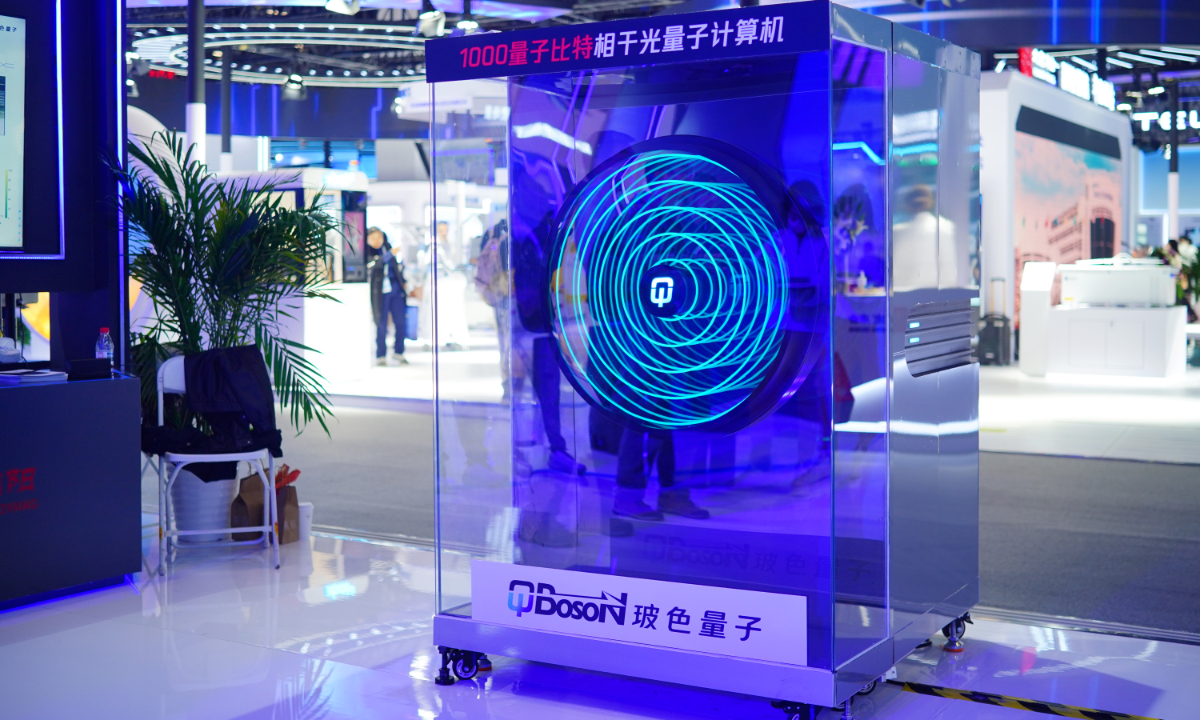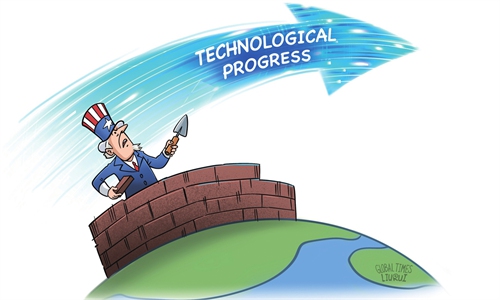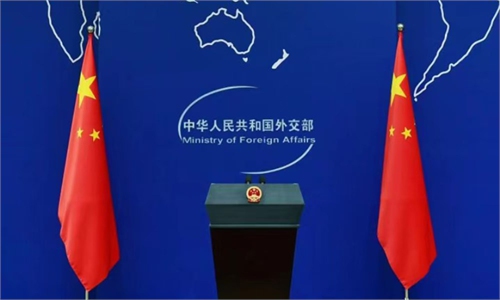
Boson Co showcases its optical quantum computer at the 27th China Beijing International High-Tech Expo. Photo: VCG
China's private sector promotion law, which will come into effect on May 20, represents China's first fundamental legislation dedicated to shoring up the private sector. Notably, sci-tech innovation is included as an independent chapter among the nine chapters of this landmark law.
The legislation helps promote sci-tech innovation by empowering competitive private entities to take the lead in the nation's major technological innovation tasks. The law also facilitates their access to major scientific research infrastructure. And, the law includes specific provisions aimed at strengthening technology application and collaboration, fostering talent development and enhancing the protection of intellectual property of private enterprises.
For a long time, China's private companies have played a very important role in sci-tech innovations, with their capabilities in many fields exceeding expectations. Encouraging the private sector to participate in major technological tasks helps effectively combine technology with funding, continuously driving the emergence of new products and services enabled by new technology and new inventions, thereby promoting technological innovation and strengthening the transformation of sci-tech achievements.
The private sector promotion law is expected to further bolster the sci-tech innovation of private enterprises, invigorate their innovative spirit and unlock their full potential.
The law encourages private entities to strengthen fundamental and cutting-edge technology innovations, based on national strategic needs, industry development trends and global technological frontiers.
It encourages the development of key technologies, common foundational technologies and frontier interdisciplinary technologies. This process will help steer private enterprises toward becoming leaders in technological innovation and promoting their involvement in cutting-edge fields including semiconductor chips, artificial intelligence (AI) and quantum computing.

Cui Chuangang Photo: Courtesy of Cui Chuangang
China's emphasis on the development of new quality productive forces and tech innovation is evident, so encouraging private enterprises to participate more in this important field aligns with the developing trends. Incorporating this concept into law is of significance.
Throughout the process of economic informatization and digitalization in China, private enterprises have played a crucial role. In recent years, many private companies have displayed outstanding capabilities in cutting-edge innovation fields including AI, new energy and drones. Private enterprises are more sensitive to market demands, exhibit greater operational flexibility and highly motivated to foster innovative technologies.
The sensitivity enables them to quickly respond to market shifts and adjust their products and services to meet consumer expectations in a timely manner. However, this advantage is not limited to the consumption sector. Over the past decade, private enterprises have made significant progress in many high-tech fields such as aerospace.
Through technological innovation and market orientation, these companies have driven industry development and enhanced overall competitiveness.
An increasing number of private enterprises have the capability to undertake major national projects. With the advancement of technology, private enterprises possess stronger financial resources and richer intellectual resources, enabling them to take on more significant tasks.
For an example, in the emerging AI field, many breakthroughs primarily come from private enterprises. The development of large language models is largely done by private companies. This is because private enterprises tend to focus more on the consumer market in the development of AI models, especially in the application of chatbots, where they are more willing to invest resources.
But the potential of AI goes far beyond the consumer market. The underlying architecture of AI technology can be applied to multiple fields, not limited to the consumer market, but also playing a significant role in more critical areas such as national security and other crucial applications.
The private sector promotion law will enable private enterprises with robust scientific and technological innovation capabilities to better align with national strategies. Additionally, encouraging the participation of private enterprises in addressing major national scientific and technological challenges will aid the overall landscape of technological innovation in China.
By providing legal protection and regulatory support, private enterprises will receive stronger support in financing and other aspects when participating in major projects. The law also backs private entities in participating in the formulation of industrial standards. This mechanism may expand to more fields, promoting broader technological transformation and unleashing greater growth potential.
The author is a financial commentator. bizopinion@globaltimes.com.cn



